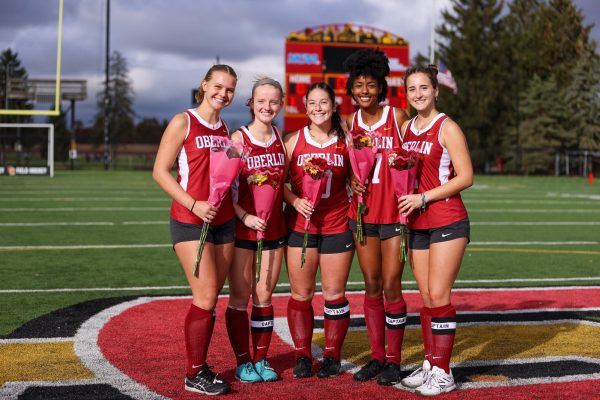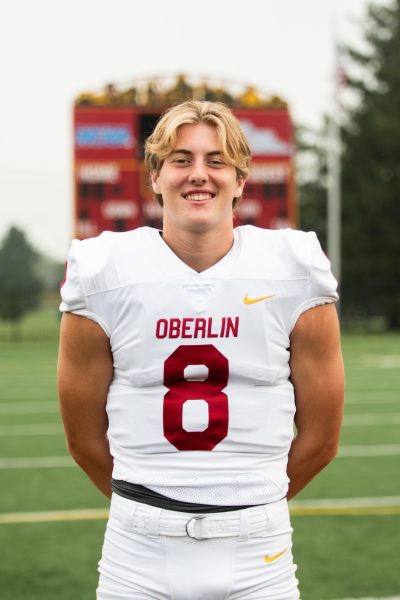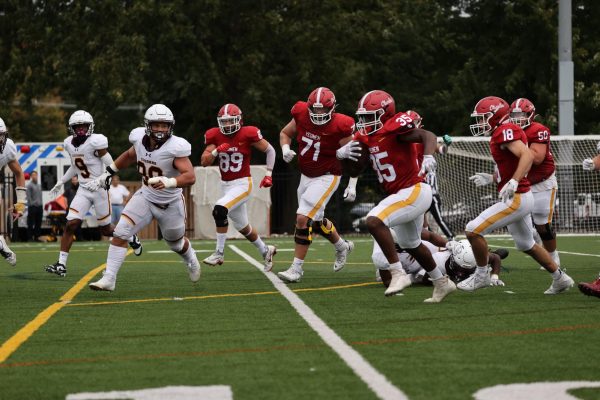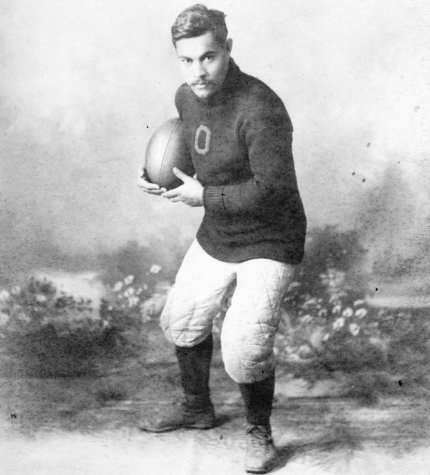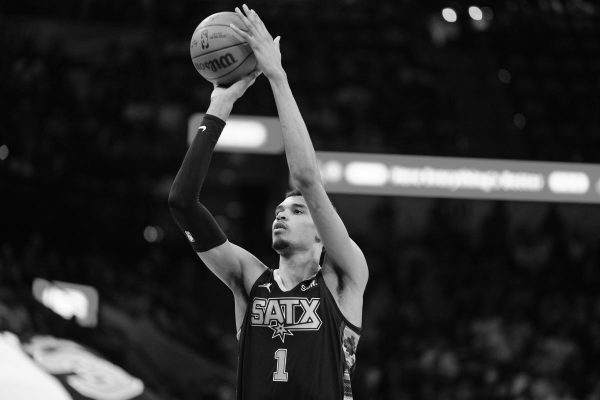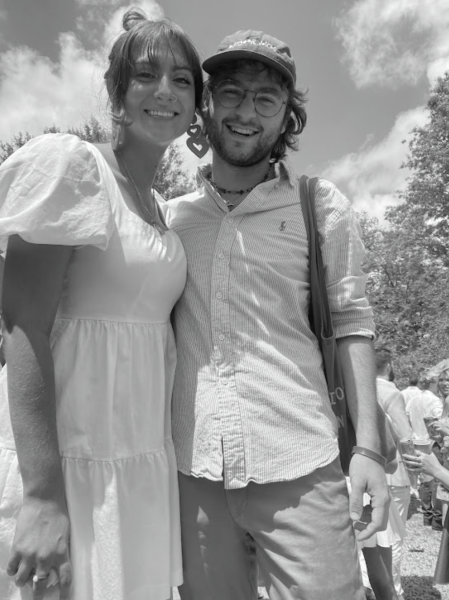Alumni who Stay in Athletics: Exploring Sports After Oberlin
Sports play a defining role in the lives of student-athletes, before and after college.After graduating, most athletes stay in touch with their teammates and continue to work out — and some even pursue a career in sports.
Former Oberlin football player Jason Hewitt, OC ’20, always knew that he wanted to be involved in football post-graduation but was unsure of his academic goals entering college. When he developed an interest in journalism, he discovered that he could write about his beloved sports and their communities.
“Seeing the business of college football really opened my eyes and encouraged me to do my research on the NCAA, which further increased my intrigue in journalism,” he wrote in an email to the Review. “Once I started developing relationships with my teammates, coaches, trainers, equipment managers, and student-athletes on campus I realized that I loved the stories that they lived through. That feeling only magnified within me when I started covering sports and talking to people I never met before. It’s almost like I experience a sports documentary first-hand if that makes sense, and it all started with the relationships I’ve built through football.”
Other former student-athletes have leveraged their collegiate experience to return to their sport as coaches. Lilah Drafts-Johnson, OC ’18, worked as Assistant Track and Field Coach for sprints and hurdles at Amherst College after graduating, putting to use her record-breaking track skills to motivate other athletes to reach their full potential. She was inspired to pursue the position after shadowing Head Volleyball Coach Erica Rau for a North Coast Athletic Conference fellowship working in college athletics.
Former field hockey player Kennedy Kline, OC ’19, was also drawn to coaching and took a position at her high school, William Penn Charter School, as a field hockey coach. The position reframed her college experiences in a new light.
“Being on the coaching side of a team gave me an entirely new appreciation for coaching and team management,” Kline wrote. “There is so much more to coaching a team than I was able to see as a player. I got to see firsthand how challenging it is to do things like plan a time-efficient practice and adapt to different players’ styles. I also came to understand how much coaches are invested in the success of their team and athletes as individuals and I gained a lot of respect for my coaches at Oberlin and before.”
Both Drafts-Johnson and Hewitt found that pre-professional experiences at Oberlin informed their later career decisions. For Hewitt, his publication experience was an asset in deciding to pursue sports journalism.
“I wrote for the Review, the Grape, and the [Oberlin] Blogs all while playing football,” he wrote. “The skills I learned while writing for those three platforms helped my writing grow tremendously, so I felt like I could do even more. During my junior year, I reached out to one of the editors of SBNation and asked if I could write about the Carolina Panthers on the site. I sent my resume, he was impressed, and the rest was history.”
After coaching for a year, Drafts-Johnson left Amherst to take a position as Coordinator of Player Programs at Major League Baseball. In this role, she creates programming on violence prevention for MLB players and staff — combining her interests in sports and her work as a PRSM trainer while at Oberlin.
“Like most sports organizations, MLB has a number of policies that players and staff must follow,” she wrote in an email to the Review. “They range from the drug testing policy, to the anti-hazing and anti-bullying policy, to the social media policy, or the domestic violence, sexual assault, and child abuse policy, which is what I mostly work on. … I relate it to the job of PRSM trainer at Oberlin: facilitating conversations on healthy relationships and consent, but now instead of my peers I’m doing this work with baseball players.”
For these alumni, their experiences in athletics informed their career trajectories beyond Oberlin and after their tenure as players ended.


